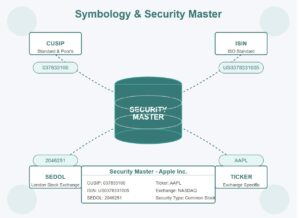Home Education center Faith-Based Investing in the World of Direct Indexing
Faith-Based Investing in the World of Direct Indexing
Table of Contents:
Introduction: A Convergence of Faith and Finance
Faith-based investing aligns personal values with financial goals, making it a natural fit for direct indexing. As demand for ethical investing grows, this approach lets investors build personalized portfolios that reflect their beliefs while maintaining financial flexibility.
Understanding Faith-Based or Biblically Responsible Investing
Faith-based investing, also known as biblically responsible investing, involves building an investment portfolio that reflects one’s religious and moral beliefs. This approach screens investments based on Biblical principles or spiritual values, prioritizing companies that uphold ethics, contribute to society, and operate with integrity.
The movement towards biblically responsible investing can be traced back to the broader discipline of socially responsible investing (SRI), which emerged in the 1960s. However, faith-based investing is distinct in its explicit reliance on religious guidelines to shape investment decisions. For devout investors, this approach doesn’t just concern financial returns; it’s about fulfilling a spiritual duty and promoting a better world in accordance with their beliefs.
Direct Indexing and Its Role in Customization
Direct indexing offers a powerful tool for customization, enabling individual investors to own the underlying securities of an index, rather than investing in a pooled fund like an ETF or mutual fund. This technique permits investors to tailor their portfolios to reflect personal values and preferences without the constraints of a standard fund structure.
– Custom Security Exclusions
A key benefit of combining direct indexing with faith-based investing is the ability to exclude companies or sectors that don’t align with an investor’s beliefs. This allows investors to avoid industries like tobacco, alcohol, gambling, or certain media outlets that conflict with biblical values.
Take, for example, a Christian investor who may wish to exclude investments in a casino operation. With direct indexing, this exclusion can be precisely executed, allowing the investor to maintain high freedom in managing the breadth of their portfolio holdings. This level of detailed screening ensures that investments uphold the investor’s ethical considerations.
– Value-Driven Alignment
Faith-based direct indexing goes beyond exclusions, allowing investors to actively support companies that reflect their values. Businesses with sustainable practices, fair labor policies, strong community impact, and transparent governance are often prioritized.
For example, a renewable energy company known for environmental responsibility and community engagement may appeal to investors who value stewardship and ethical leadership.
– Enhanced Personalization
Unlike traditional investment vehicles, direct indexing offers unmatched personalization. Financial advisors can work closely with investors to design portfolios that not only meet financial objectives but also respect their spiritual or ethical standards. This personalized approach ensures that an investor is not obliged to compromise on their beliefs to achieve their financial goals.
Consider a scenario where an advisor creates a direct indexing strategy for a client who wants to invest solely in companies that practice fair wages and labor rights. The advisor can customize the portfolio to include only those companies, creating a unique investment vehicle that reflects both ethical considerations and desired financial outcomes.
– Impact and Stewardship
For many faith-based investors, the concept of stewardship—responsibly managing resources in ways that honor their beliefs—is crucial. Faith-based direct indexing ensures capital is allocated responsibly, giving investors peace of mind that their investments support the greater good.
For example, an investor can prioritize companies that donate to charity, using direct indexing to build a portfolio that reflects their values while making a tangible impact.
Benefits for Financial Advisors
The flexibility of direct indexing combined with faith-based investing principles empowers advisors to serve their clients more effectively. Advisors can engage in meaningful conversations about their clients’ values, helping to align financial goals with ethical and spiritual beliefs. This alignment can deepen trust and strengthen client-advisor relationships.
Moreover, by offering tailored faith-based investing solutions, advisors can differentiate themselves in the marketplace, attracting a niche clientele passionate about aligning their finances with their faith.
Real-World Example: Guiding a Faith-Based Indexing Strategy
Let’s delve into a hypothetical example illustrating how direct indexing facilitates faith-based investing. Consider an advisor with a client named Mary, a devoutly Christian investor concerned with environmental sustainability and fair labor practices. Mary desires a portfolio reflective of her values.
To cater to her needs, the advisor uses direct indexing to recreate a broad market index but excludes companies involved in oil production and gambling. Additionally, the advisor includes firms with accolades for reducing carbon footprints and promoting fair trade. This portfolio not only aligns with Mary’s ethical stance but also seeks competitive financial returns.
Through regular reviews, Mary’s advisor can adjust the portfolio to accommodate evolving ethical priorities or changes in available investment options. This dynamic process highlights the ongoing potential for customization, a hallmark of both direct indexing and faith-based investment strategies.
Conclusion: A Harmonious Investment Approach
Faith-based investing goes beyond financial returns, blending ethical and spiritual values with direct indexing for a holistic approach. By prioritizing values-driven portfolios, investors can achieve financial goals while staying true to their beliefs.
For advisors and institutions, this strategy strengthens client engagement, loyalty, and fulfillment by connecting faith with finance.
Related Links
- FAQ
- The Future of Personalized Investing with Direct Indexing
- In-Depth Analysis: Exploring Real-World Direct Indexing Case Studies from Verity Wealth Partners and Alphathena
- The Great Wealth Transfer: Utilizing Direct Indexing to Meet Changing Client Needs
- ESG Integration Example: Leveraging Direct Indexing for Ethical Investment
Offer personalized experiences for every client at scale




